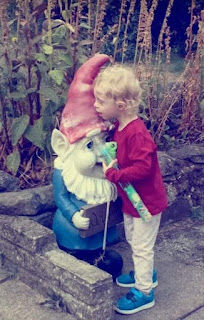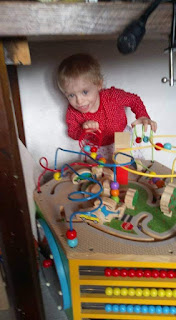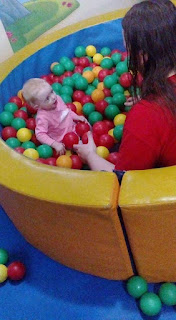Keep talking

Just keep talking. Not at your children, with your children. A conversation, not a lecture. A dialogue, not a monologue. Alongside learning through play, learning through conversation is key. The beauty of this? This relationship can begin from when they're in the womb. The art of conversation is naturally a social skill. The learning of social skills begins within the home and then practiced in social settings externally from the home. Relationships with toys are innate with children, and they will practice their art of conversation with their beloved friends. Is this not a one-way communication? Not if they have the imagination to provide both sides of the conversation. Here, Sophia, despite having a sister she could have communicated with, decided to have a chat with the garden gnome. He was one of her best friends, and she was to practice further social skills such as sharing with him during the future lockdowns.


